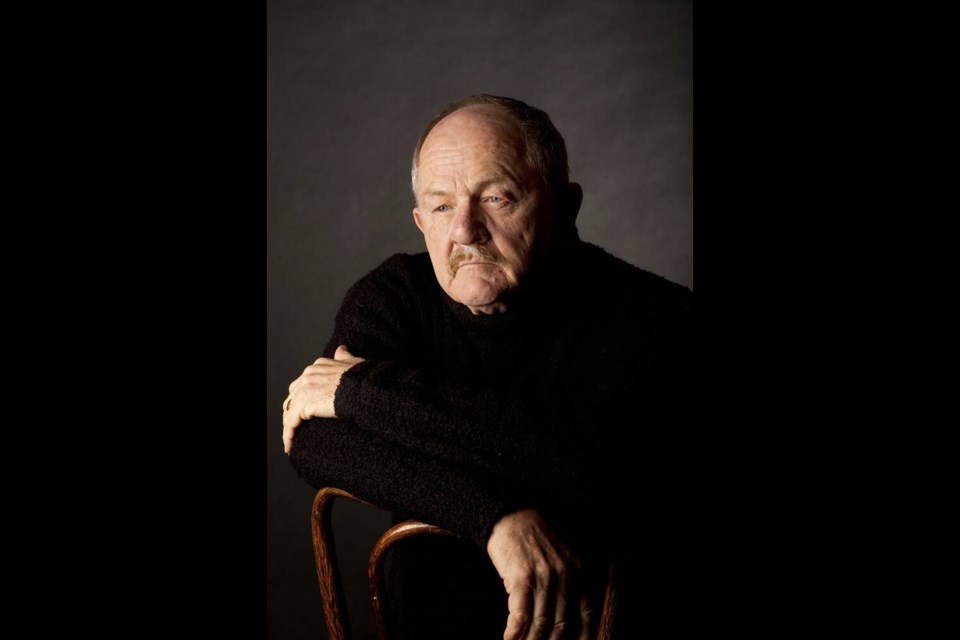What: The Quiet in Me: A Tribute to Patrick Lane
Where:
When: Friday, April 22, 5 p.m.
Admission: Free through
A literary editor must cut when necessary and rearrange if needed, offering encouragement all the while.
But how does an editor navigate these tasks when the author whose work is being poked and prodded is no longer alive? With great difficulty, according to Lorna Crozier.
The celebrated Victoria author recently undertook the emotional, arduous job of compiling a series of poems written by her late partner of more than 40 years, Patrick Lane, into the posthumous collection, The Quiet in Me.
Lane died in 2019, after a long illness, just three weeks shy of his 80th birthday, but left behind pages containing what Crozier understood to be his final book of poetry. “It was an onerous task to pick up the folder of poems that Patrick left behind, not just as a reader, but as an editor,” Crozier said.
“But in order to do that, you have to get into the mindset and heartset of the poet. It brought a lot of grief back, going through them while also trying to be objective.”
Both Crozier and Lane taught at the University of Victoria for several decades, one of countless ways their personal and professional lives were intertwined. Both are officers of the Order of sa国际传媒, and both have won the Governor General’s Literary Award. Crozier and Lane are counted among the best writers sa国际传媒 has produced.
Many of the couple’s friends and former students from UVic will participate today in a tribute on Zoom hosted by Howard White from Harbour Publishing. The event will feature readings from The Quiet in Me by Crozier, Esi Edugyan, Rhonda Ganz and Steven Price, in addition to Lane’s sons, Michael and Richard.
On many occasions, when writing, Crozier said she and Lane were sounding boards for each other, offering both support and suggestions. They had discussed almost every one of the poems prior to his death three years ago, and she had written her suggestions on the pages containing his original poems, “but he never got well enough to respond to my edits,” Crozier said.
“When he died, I had the manuscript with my notes, but no changes from him, either in agreement or disagreement.”
She would often speak aloud, while editing the poems, in the event Lane might hear her. He was fiercely protective of his work, she said, which made the editing process quite difficult for her. “I tried to almost channel him and say: ‘What do you think, honey? Can I take this line out?’ It felt like I was taking on something that was delicate and important. These are his last words. I wanted to make sure I didn’t send a poem out there that he didn’t mean to be published.”
Crozier was the best person for the job, without question. Five poems were excised from the sheaf Lane had given Crozier, and she included a few that were not in the folder or intended as part of the original manuscript. Crozier saw the material in The Quiet in Me as a “secondary conversation” to his previous book of poetry, 2014’s Washita.
“These poems have a similar tone, in that they were written by an older man who came to a very hard-won wisdom. That was the stage of his life that he had reached. After a lot of hard jobs, a hard life, and wrecked families, he came to a place of quiet. He was looking back, not in bitterness or anger, but with a kind of overview of where a life could take you.”
The poems span a three-year period, but many predate that time period by several decades, she said. She can tell by his tone on some of the latter ones that Lane knew the end was near. How Many Times Have I Taken Out My Death?, the penultimate poem in this collection, is an apt example of this. It is followed by the collection-closing Fragments, during which Lane revisits his seven-year-old self, offering well wishes.
His illness was never properly diagnosed, and reportedly baffled his doctors. But because Lane did not die of a sudden heart attack, nor fall victim to an accident, he had time to process his mortality. Crozier said Lane took the opportunity to address death on his own terms, an opportunity few writers are ever given or choose to accept.
“Not everybody is so committed to their artform that they keep it going almost on their deathbed,” she said. “He never gave up reading and writing.”



